The Ras Al Khaimah International Airport Expansion: Redefining Travel to the Nature Emirate
Table of Contents The Rise of a New Travel HubWhat the Airport Expansion Means for TravelersPlaces to Visit Near Ras…








Thinking about visiting the United Arab Emirates? What time of year you visit can affect your overall experience of the country. So, if you want to know the ideal time to visit, here’s what you should know.
While preferences vary, most people tend to visit from November to March, which marks the “high season” for tourism in the country. During these months, the cooler winter weather prevails, with maximum temperatures averaging in the 70s.
Of course, that range isn’t cold by international standards, but it’s cool enough to enjoy numerous outdoor activities. Winter is also when most tourism-oriented businesses are running at full capacity, so you’ll have the greatest opportunity to experience everything the country has to offer.
If you’re concerned about the weather, Ras Al Khaimah is the northernmost Emirate and tends to have the coolest temperatures.
Spring (roughly March to May) and autumn (September to November) are also decent times to visit. Still, the daily temperatures range from the low 80s to the low 90s, depending on how close you are to summer.
These months are essentially the mid-season for tourism, where things are open, but it’s not quite as busy as winter. Costs are usually lower, so if you don’t mind the slightly warmer weather, you can make significant savings on your trip.
However, March and April have occasional sandstorms that can interrupt travel. Although some people come specifically to try and experience these, autumn will be your best bet if you want to be sure of avoiding them.
Summer is roughly June through August in the UAE. Daily temperatures average over 100 degrees and occasionally exceed 120. For many, that’s going to be a little too hot, but most indoor facilities have active cooling that ensures they can offer respite from the heat.
It’s hard to recommend coming to the UAE in summer for outdoor activities. Still, if you want to see museums or other indoor locations, visiting during this period can save you money and let you avoid the crowds typical in winter.
The United Arab Emirates observes Ramadan, which lasts for one lunar month (about 28 days). Keep in mind the country uses a non-Gregorian calendar to calculate this holy month.
Consequently, Ramadan starts roughly 10 to 11 days earlier in the Gregorian calendar every year. That means it could occur at any time of year, so you should check for it before your trip.
Regardless of what season it occurs in, arriving during Ramadan means the UAE will be quieter during your trip. For visitors, many activities are forbidden in public during the fasting hours of dawn to sunset.
For additional help during Ramadan, visit the official government website linked above or talk to your hotel staff. They can provide advice on things like places to visit during the holy month, such as opening times. Grocery stores and supermarkets generally remain open.
One of the most majestic parts of the UAE is Ras Al Khaimah. This Emirate boasts a wide selection of activities for visitors, especially when it comes to outdoor sports and exploration. The cooler winter weather is the ideal time to enjoy these.
Options include mountain biking, hiking, and even running along specially-built routes. If you’re feeling competitive, you can even participate in marathons and triathlons throughout the year, some of which attract world-class athletes.
For a better view of the area, try the Jais Flight zipline. Jais Flight is the longest zipline in the world at 2.83 kilometers, lasting for about three minutes and reaching 150 kilometers per hour (about 93 miles per hour). It offers a stunning view of the surroundings and operates under a single professional team to ensure total safety.
For a more leisurely activity, you can visit Dhayah Fort. Originally occupied from 1600 to 1300 BCE, this site eventually became home to a mud-brick fortress in the 18th Century thanks to its outstanding location. It has since been renovated, with a restoration in the 1990s that made it safe for visitors.
At the base of the fort, there are 12 ancient tombs, four of which have already been excavated to show classic funerary structures. Dhayah has the distinction of being the highest hilltop fort in the country.
If you’re feeling warm, consider a trip down to Flamingo Beach. The namesake birds live in large groups in the area, making it a great place to enjoy the wildlife. You might even see camels striding down occasionally to bathe in the local waters.
Flamingo Beach is highly accessible to visitors, with generously-sized walkways that make it easy to use prams, wheelchairs, and other walking aids. If you’re feeling hungry, you can find coffee shops and restaurants just off the beach area.
Ras Al Khaimah is one of the longest continually-inhabited places in the world. It long served as a link for trade, with paths connecting the area to Mesopotamia, China, India, and Zanzibar being particular highlights.
The National Museum of Ras Al Khaimah is one of the most remarkable buildings still standing. Over the years, it’s acted as a defensive fortress, the home of the ruling family, a police station, and more recently the premier museum in the Emirate.
Ras Al Khaimah has over 1,000 individual archaeological sites with works spanning thousands of years. That collection means the Emirate has one of the most densely-packed historical records in the world. Many of the top antiquities found now reside in the National Museum, so there’s nowhere better if you want to see the best of the region’s history.
While you may associate the United Arab Emirates with hot weather, that’s mainly only true in the summer. Autumn to spring are tourist-friendly seasons, and there’s plenty to do both indoors and outdoors throughout the year. If you’re looking for cooler temperatures, then winter is the best time to visit the country.

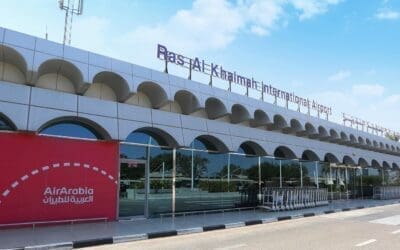
Table of Contents The Rise of a New Travel HubWhat the Airport Expansion Means for TravelersPlaces to Visit Near Ras…


Table of Contents Key TakeawaysTaxi Apps in Ras Al Khaimah: The Easiest Way to Get AroundCareemSayrOther Cab-Hailing OptionsCall the Ras…
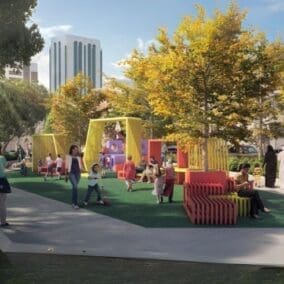

Table of Contents About the Al Riffa Ras Al Khaimah Park ProjectWhat to Expect From Al Riffa Park, Ras Al…
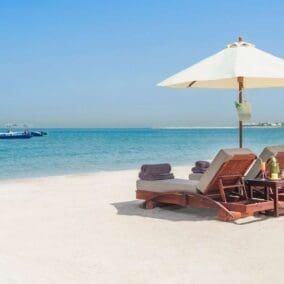
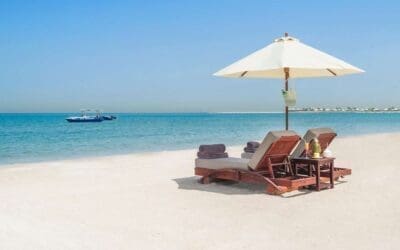
Table of Contents When to Book: Timing Is Everything for Budget-Friendly Flights1. The Best Time of Day, Week, and Year…

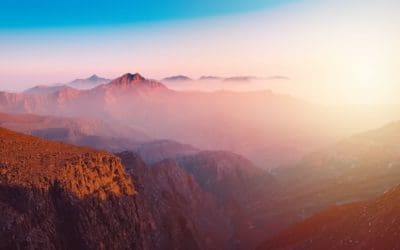
Table of Contents The Geology of Jebel JaisMountains of Time: Exploring the History of Jebel JaisModern Life in an Ancient…
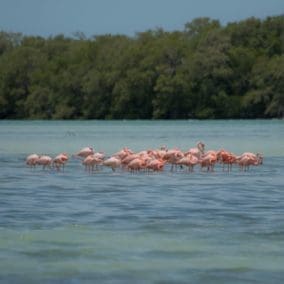
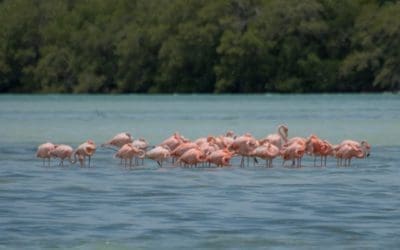
Table of Contents The Unique Ecosystems of Ras Al KhaimahDesert landscapesMountains and wadisCoastal and mangrove zonesNative and Introduced Species You’ll…